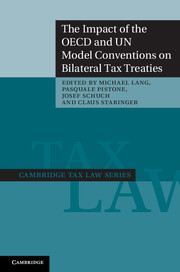Book contents
- Frontmatter
- Contents
- Contributors
- Preface
- Table of cases
- Table of statutes
- General report
- 1 Argentina
- 2 Australia
- 3 Austria
- 4 Belgium
- 5 Brazil
- 6 Canada
- 7 Chile
- 8 China
- 9 Colombia
- 10 Croatia
- 11 The Czech Republic
- 12 Estonia
- 13 Finland
- 14 France
- 15 Germany
- 16 Hong Kong
- 17 Hungary
- 18 India
- 19 Italy
- 20 Lebanon
- 21 Liechtenstein
- 22 The Netherlands
- 23 New Zealand
- 24 Norway
- 25 Peru
- 26 Poland
- 27 Portugal
- 28 Romania
- 29 The Russian Federation
- 30 Serbia
- 31 Slovakia
- 32 Slovenia
- 33 Spain
- 34 Sweden
- 35 Uganda
- 36 The UK
- 37 The USA
- Index
- References
24 - Norway
Published online by Cambridge University Press: 05 November 2014
- Frontmatter
- Contents
- Contributors
- Preface
- Table of cases
- Table of statutes
- General report
- 1 Argentina
- 2 Australia
- 3 Austria
- 4 Belgium
- 5 Brazil
- 6 Canada
- 7 Chile
- 8 China
- 9 Colombia
- 10 Croatia
- 11 The Czech Republic
- 12 Estonia
- 13 Finland
- 14 France
- 15 Germany
- 16 Hong Kong
- 17 Hungary
- 18 India
- 19 Italy
- 20 Lebanon
- 21 Liechtenstein
- 22 The Netherlands
- 23 New Zealand
- 24 Norway
- 25 Peru
- 26 Poland
- 27 Portugal
- 28 Romania
- 29 The Russian Federation
- 30 Serbia
- 31 Slovakia
- 32 Slovenia
- 33 Spain
- 34 Sweden
- 35 Uganda
- 36 The UK
- 37 The USA
- Index
- References
Summary
The relevance of the OECD and UN Model Conventions and their Commentaries for the interpretation of Norwegian tax treaties
Introduction
Norway has a relatively broad tax treaty network with treaties with about eighty-five jurisdictions. The first tax treaty was signed with Sweden as early as 1913, only eight years after the splitting of the union between Norway and Sweden. This first tax treaty was a treaty specifically designed to cover the relations between Norway and Sweden in the north regarding the mining industry.
The first ‘ordinary’ tax treaties were those signed in 1946 with Denmark and in 1947 with Sweden. After this, Norway signed tax treaties with its most important trading partners. Thus, it signed a tax treaty with the UK in 1951 and with the USA in 1952. The first treaty with the Netherlands was signed in 1952.
Tax treaties have also been concluded with jurisdictions as a result of foreign aid policy and due to the significant number of immigrants from a jurisdiction.
The tax treaty with the Nordic countries (Nordic Convention)2 is a multilateral tax treaty. All other tax treaties are bilateral treaties. The treaties are mainly based on the OECD Model Tax Convention on Income and on Capital (OECD Model). In some situations, where Norway has entered into tax treaties with developing countries, these treaties are influenced by the United Nations Model Double Taxation Convention between Developed and Developing Countries (UN Model), in which more taxing rights are allocated to the source country.
- Type
- Chapter
- Information
- Publisher: Cambridge University PressPrint publication year: 2012



